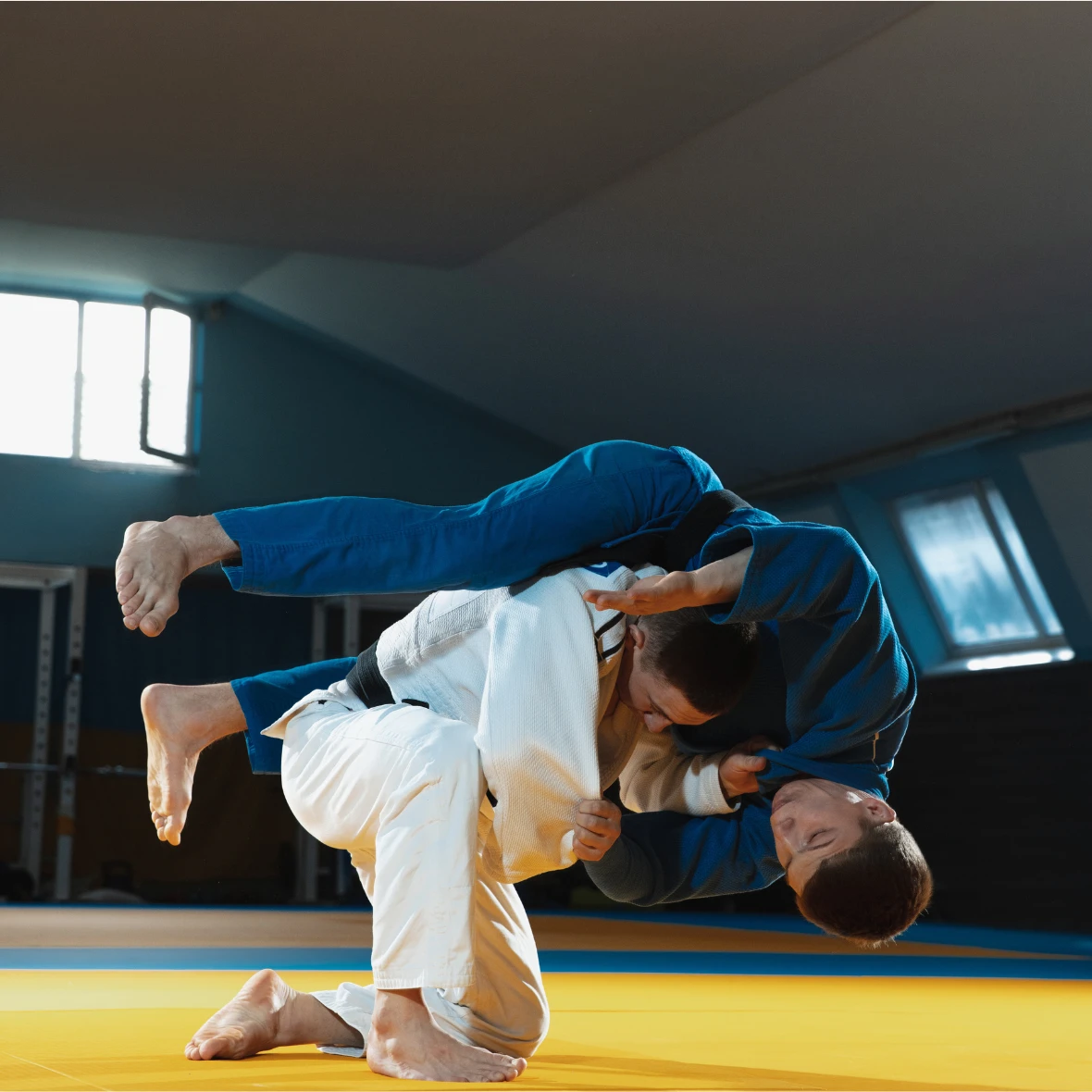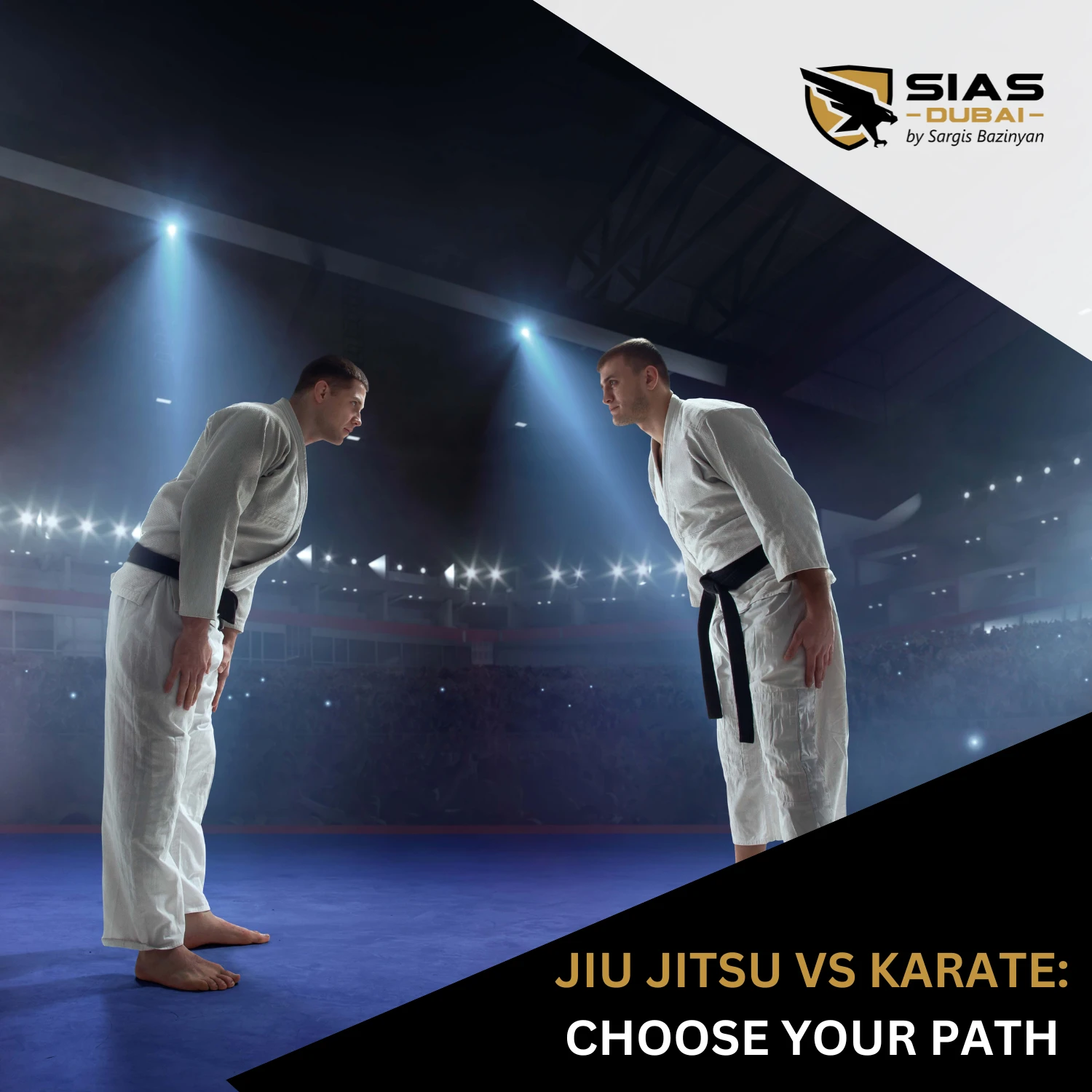In terms of MMA, choosing between Jiu-Jitsu vs. Karate might pose a challenge. Both arts have very different techniques, philosophies, and associated benefits. If you're looking to decide on one for either learning some self-defense, improving your fitness, or just trying something new, then you definitely need to know how Karate differs from Jiu Jitsu. So precisely, what is the actual difference between Karate and Jiu Jitsu, and which one is better for self-defense? Let us now get deeper into these exciting disciplines.
The Philosophy and Origin
Jiu-Jitsu, or simply Brazilian Jiu-Jitsu and BJJ, is a martial art that means ground fighting or grappling. Having been born in Japan and developed in Brazil, it is the technique over strength that allows smaller individuals to defeat bigger opponents using leverage and submission holds.
In contrast, Karate is an indigenous Okinawan Japanese art of striking. It emphasizes mighty kicks, strikes, punches, and blocks. Herein, one seeks to develop speed, power, and precision to effectively kill or neutralize the threat.
Techniques
BJJ and Karate teach different techniques. While BJJ revolves around ground fighting and grappling techniques, including chokes, joint locks, and submissions, Karate consists of strikes and kicks, such as punches, kicks, and knee strikes. Throws and joint locks do occur in both, but they are not as secure in Karate as in BJJ.
Styles and Forms
It has different styles and forms, just like BJJ. Other forms of BJJ include the Brazilian Top Team, Gracie Barra, and Alliance Jiu-Jitsu, to mention a few. While in Karate, it has varying forms like Shotokan, Goju-Ryu, Shito-Ryu, amongst many others. Any style or form that makes up a given martial art has techniques and strategies unique to it that a practitioner can learn and perfect.
Training
The core concepts of Jiu-Jitsu training involve three basic strategies: control on the ground, submissions, and escapes. Much time is devoted to sparring for applying the techniques in live situations. All these things have hands-on applications, thus building practical skills that could be directly used in self-defense.
Karate training includes practicing katas, which are pre-arranged sequences of movement. The katas will allow the student to build muscle memory and further perfect techniques in isolation. Added to this is the fact that Karate classes include striking sparring, pads, and conditioning work to develop general strength and stamina.
Is Karate or Jiu-Jitsu Better for Self-Defense?
Both karate and BJJ are effective techniques that can be used in the combat phase of self-defense. Here is a comparison that can help in ascertaining which one might be better for you.

Karate
- Striking Techniques: Karate has much to do with powerful striking. Punches, kicks, and blocking—each one of these techniques is very strong and can take down an opponent quickly if you are able to keep him at bay.
- Speed and Precision: Karate artists are capable of delivering speed and precision, which allows one to hit vital areas with a strike, possibly ending an attack before it escalates further.
- Stand-Up Fighting: Karate is essentially a stand-up martial art, and this can be effective in the main-conflict phase of self-defense situations where it is important to stay on your feet for purposes of escape or handling multiple attackers.
Brazilian Jiu-Jitsu (BJJ)
- Grappling and Ground Fighting: The BJJ focuses much on ground fighting, submissions, and controlling opponents by use of leverage and technique. This comes in very handy when a fight goes to the ground.
- Control and Restraint: It trains a person to be able to control and submit an attacker without killing him, which helps in situations where a threat must be neutralized with a no-nonsense approach, yet without the use of excessive force.
It means that, thanks to the strong focus on leverage and techniques, BJJ is very efficient when defending against larger and stronger opponents—a huge advantage in combat situations.
Considerations for Self-Defense
- Situational Awareness: Self-defense is a combination of physical techniques and involves situational awareness, proportionality in the actions taken, de-escalation skills, and the ability to avoid dangerous situations altogether.
- Skill Mix: Most self-defense experts will preach about learning to strike and grapple. A mix of Karate with BJJ can round out a person's skills to accommodate the different situations encountered, whether standing or on the ground.
- Phases: Self-defense can be broken down into three distinct time phases: pre-conflict, main-conflict, and post-conflict. The pre-conflict phase involves awareness, de-escalation, and avoiding potential threats. The main-conflict phase is where physical defense techniques may be necessary to protect yourself. Finally, the post-conflict phase focuses on ensuring safety after the situation, including seeking help, reporting the incident, and dealing with any legal or emotional aftermath. Understanding these phases helps in effectively navigating and responding to dangerous situations.
What's the Difference Between Karate and Jiu Jitsu?
Probably the most important difference between Karate and jiu-jitsu is the primary focus. Karate is a striking art focused on powerful kicks and punches, while jiu-jitsu is a grappling art concerned with controlling opponents on the ground. This very basic difference molds their training methodologies, techniques, and applications in self-defense.
Choosing Your Path
Ultimately, Jiu-Jitsu vs. Karate will come down to personal preference and goals based on what a student is looking to gain from their martial arts training. If a person enjoys grappling and ground control, then Jiu-Jitsu will be a perfect fit. If one likes to strike, maintain discipline, and possess traditional values of the art of fighting, then Karate will be the way to go.
The benefits that both arts bring along are such that they complement each other very well. Many martial artists realize the value of cross-training in developing a well-rounded set of skills. If you prefer Jiu Jitsu, Karate, or even both, rest assured that the journey will be rewarding, challenging, and enriching.
Wrapping It Up
Everyone knows that training in the martial arts field is a very personal deal. Whether you like to perform with your back on the ground, as in Jiu-Jitsu—delivering powerful, bone-shaking strikes like in Karate—or prefer the structured approach of private self-defense training or the dynamic energy of group self-defense training, both ways are full of advantages. Just embrace the journey, stay committed, and you will be surprised by your potential.
Those ready to take on that journey, however, should begin at a reputable dojo or training center. Seek instructors who stress proper technique, safety, and respect. Attend classes, ask questions, and immerse yourself in the martial arts community.
SIAS Dubai will be the greatest place to start your Jiu Jitsu training. Professional trainers and an amicable atmosphere are sure to provide you with reaching your purposes related to the art of self-discipline and physical perfection. Choose the one that is most in tune with you, and let the adventure begin!

Author Bio: Hrant Kotanjyan is a dedicated and elite self-defense lead instructor with extensive experience. As a highly sought-after private training coach, he excels in delivering optimal results for both individuals and children. His expertise spans self-defense, functional training, fitness, striking martial arts, and grappling.
Sign Up for Classes Now!
If you're eager to join the millions of MMA enthusiasts worldwide and explore one of the most popular sports globally, don't hesitate to sign up for classes today! You can easily do it by filling out the "Contact Us" form on our website or by contacting us via email at info@sias-dubai.com.

